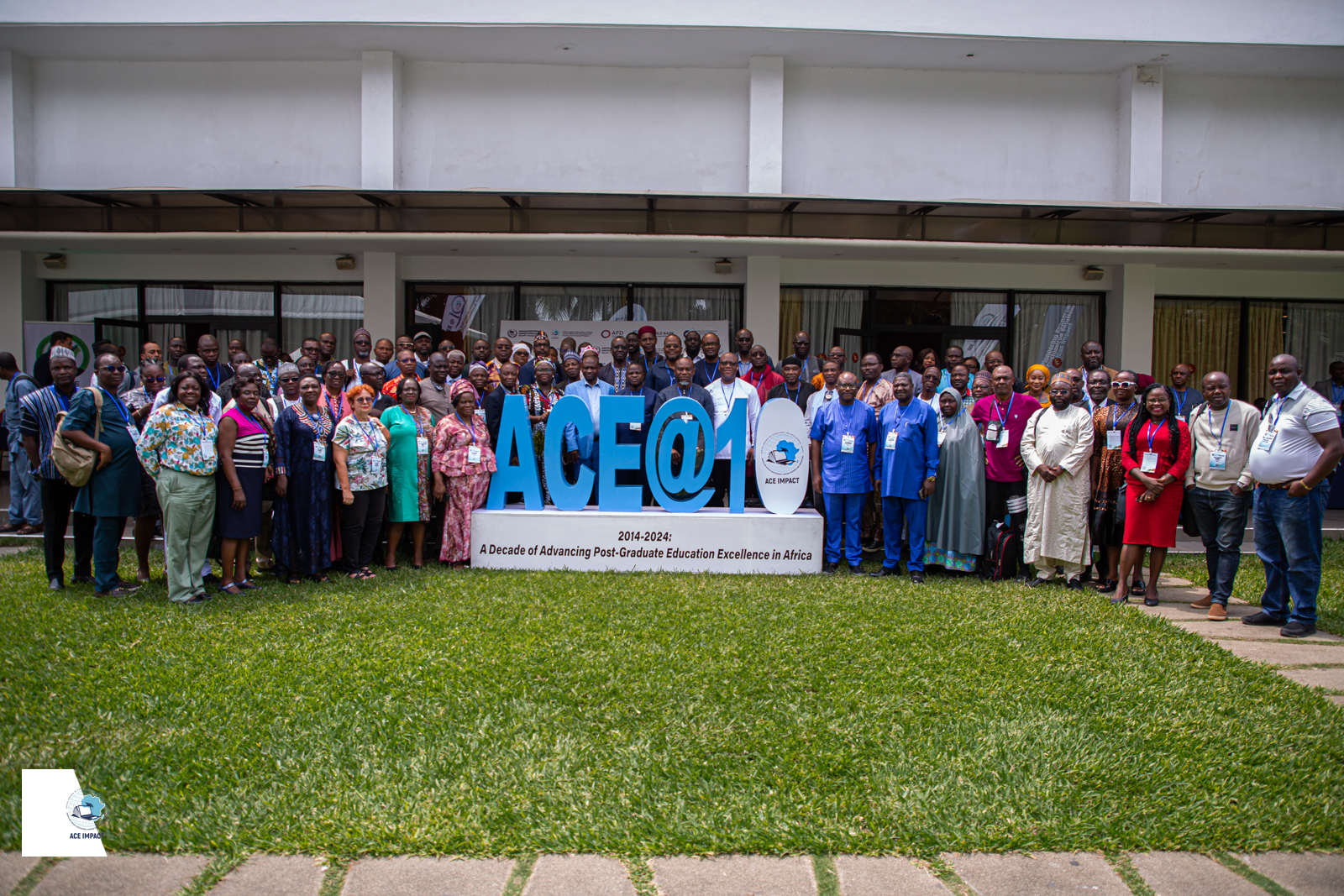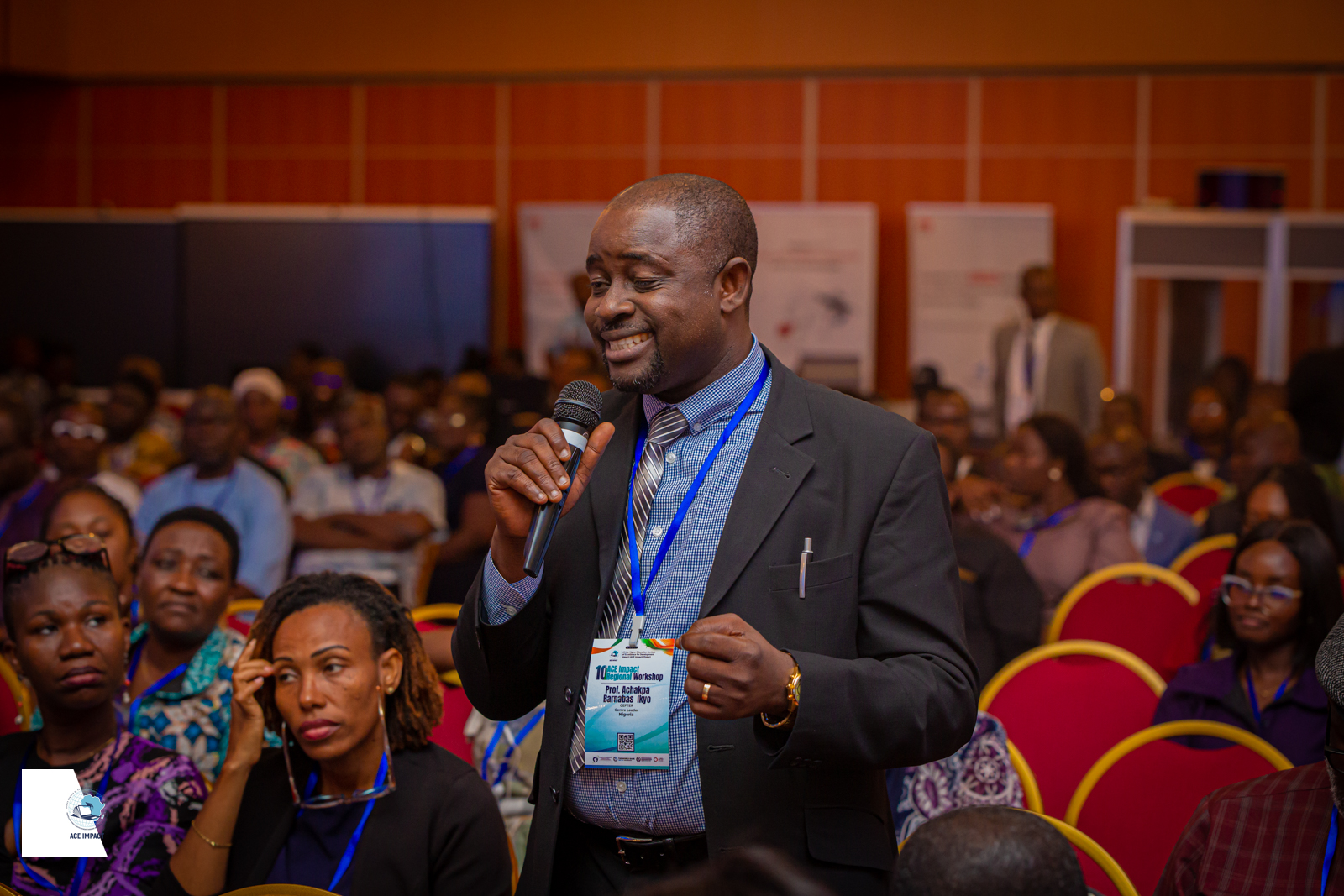31 October – 3 November 2023. Abidjan, Cote d'Ivoire. The 10th regional workshop of the Africa Higher Education Centers of Excellence for Development Impact (ACE Impact) Project was a project-wide implementation and technical support mission that is part of the bi-annual series of workshops under the project.
Participants included the leadership teams of all 54 centers, university vice chancellors/presidents, key government and ministry representatives for participating countries, and the regional project management team.
The first day consisted of (i) a formal meeting of the Project Steering Committee (PSC); and (ii) a meeting of the subject matter experts.
The subsequent three days consisted of hybrid workshop activities for all project stakeholders. Prior to the workshop were virtual national level implementation support meetings. For all sessions, there was simultaneous interpretation available in both French and English.
The main objectives of the workshop were:
- Discuss best practices and implementing plans related to various aspects of eco-system wide sustainability, including financial and operational sustainability;
- Provide implementation support to accelerate project disbursements and fund utilization with a focus on construction, accreditation, and institutional impact activities;
- Provide a peer learning platform for the centers through various avenues including the regional networks to discuss methods of achieving the more difficult disbursement linked indicators (DLIs) such as international accreditation, entrepreneurship, and institutional impact; and 4. Provide one-on-one support to centers following national supervision meetings for all fiduciary matters, including financial management, monitoring & evaluation, environmental and social safeguards, and procurement.
Panel Discussion on sustainability @56:01:
Sustainability is a critical aspect of any higher education-funded project. Beyond securing initial funding, it is crucial to explore tactical avenues for long-term sustainability through strategic partnerships and collaboration, effective resource management, and the establishment of revenue-generating initiatives.Now, more than ever, discussions on the sustainability of the centers of excellence under the Africa Centers of Excellence for Development Impact have become more crucial. The project has since 2019 been supporting 53 emerging and existing centers of excellence in West Africa and Djibouti. These centers with initial funding support from the World Bank have been committed to reshaping the African higher education landscape by offering high-quality programs that tackle developmental challenges.
Four (4) years into the project, the participating centers of excellence have amassed a remarkable array of success stories to share in terms of innovative solutions, robust training and programs, increased student enrollment, international accreditations, successful revenue generation from external sources, and community engagement.
During the 10th ACE Impact regional workshop held in Abidjan, Cote d’Ivoire on October 31, 2023, selected twelve (12) centers of excellence were given the platform to share some best practices that have contributed to the center’s successes as well as sustainability lessons across the ACEs with a focus on innovation, leadership, education, and financial integration.
Recording of the Center Director, Barnabas Achakpa Ikyos starts @01:45:12
CEFTER stands as an exemplar of how innovation can be harnessed to ensure the sustainability of the Centers of Excellence.
The center has spearheaded a multitude of student research projects that have received official recognition from Nigeria’s regulatory authority (NAFDAC), these solutions revolve around:
- transforming cassava into innovative food products, such as high-quality cassava flour and biscuits. Following the commercialization of this innovation, CEFTER secured a large-scale government contract to produce 1.6 million cassava biscuits for students across Nigeria.
- The Center Director, Barnabas Achakpa Ikyo stressed the importance of community support, government endorsement, and effective branding in their endeavors.
- Notably, CEFTER’s alumni have extended their innovative impact, with one establishing a successful cassava flour business in Cameroon and another venturing into tomato cultivation and processing. This demonstrates the center’s outstanding capacity to launch profitable endeavors and encourage innovation outside of its walls, having a long-lasting, global influence.




No comments:
Post a Comment